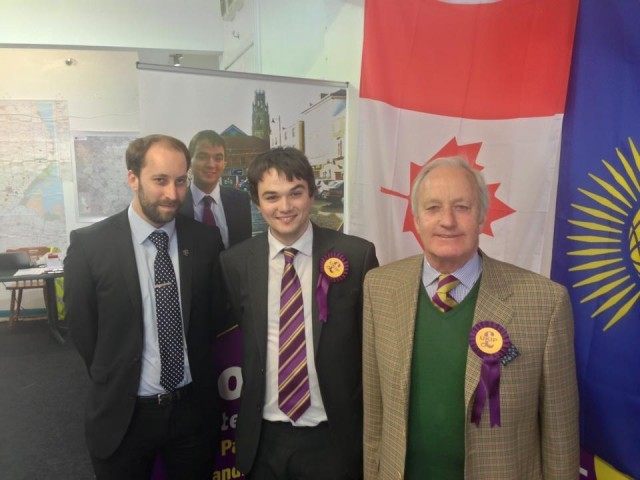A report claiming people who support UKIP lack any real experience of living with migrants has been dismissed as “factually inept” by a party spokesman.
The argument is based on a map comparing where UKIP support is strongest and where immigration is at its highest, drawing from that the conclusion UKIP voters don’t have any reason to have a problem with mass migration, the Telegraph reports.
The statistics, based on the 2011 census, say “it is impossible to miss that UKIP support is strongest wherever the immigrant population is smallest”, according to political scientist Laurence Dodds.
“There is a small amount of crossover: areas such as Bolton (sic) and Skegness or West Suffolk have a foreign-born population of ten or 15 per cent and are also high on Ukip’s list,” Dodds said.
“But, by and large, the two maps are opposites. Ukip support clusters around remote and coastal regions, including big parts of Wales and the West Country, and is absent in urban centres – especially London.”
The report cites the Essex constituency of Clacton, where UKIP MP Douglas Carswell has a huge majority going into the general election, saying it has a foreign born population of just 4.3 per cent. And Rochester and Strood, the seat of fellow defector now ukipper Mark Reckless has 9.2 per cent.
But party candidate Robin Hunter Clarke told Breitbart London, “It is very clear the headline does not match the statistics,” adding that “it’s naive to think that the 2011 census is the definitive guide to who is in this country and where they come from because annal net migration is in the hundreds of thousands.”
The Boston and Skegness candidate said “With open door immigration to half a billion people, many of whom come from poor countries and share houses in order to minimise their outgoings, the real statistics on immigration are unknown – and that is without even taking illegal immigration into consideration.”
“I’d invite them to take a trip to Boston and see for themselves the make up of my home town” he added.
Matthew Goodwin is a political scientist who has mapped the rise of UKIP. He has also written a book on the party and says that less than 0.5 per cent of people who identify as black or Asian support UKIP.
But those from outside the UK are less likely to vote UKIP in the first place, more likely to lean towards the party whose policies allowed them in or ones their community tells them represents them the best.
Immigrants are most concentrated in big urban centres such as Nottingham, Bradford, Peterborough, Birmingham, and London – where some seats have foreign-born populations of over 55 per cent. But nowhere has zero foreign-born people with even the lowest levels between 3 and 5 per cent demonstrating that even voters in those areas will have come into contact with immigrants and could well have had a negative experience.
But it’s also likely that people who travel around the country see how mass immigration has changed the social dynamic of parts of the UK which, combined with a feeling that immigrants receive an unfair advantage having not paid into the country’s coffers, or limit access to public services, contributes to a rise in concern over border control.
It is also possible that the figures are distorted by “white flight”: white voters who leave multicultural areas and move to more rural areas such as coastal towns or East Anglia and the South West.

COMMENTS
Please let us know if you're having issues with commenting.